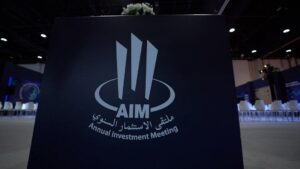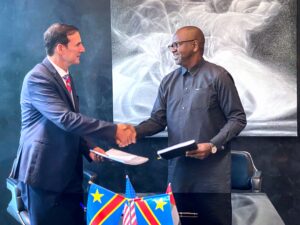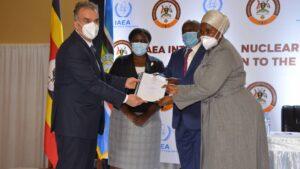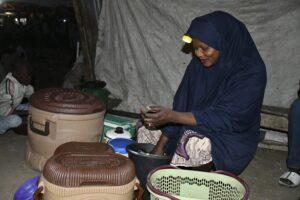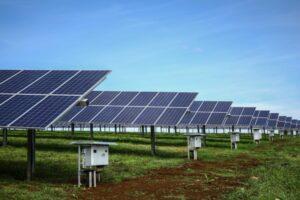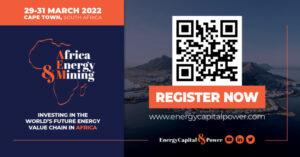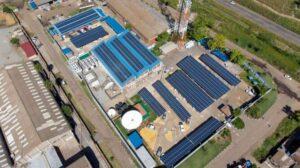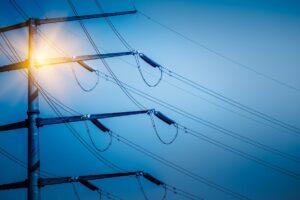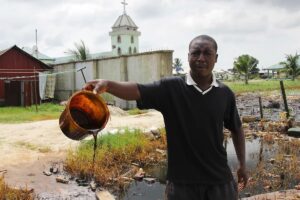- State of journalism survey 2024 shows media houses are lagging in AI adoption
- Forum sets the stage to unleash global potential for startups during AIM Congress 2024
- Consumer Expenditure in Kenya on a Six-Month High
- Kenya Ports Authority Invests $31 Million in State-of-the-Art Cranes for Lamu Port
- Fintechs should develop products that address the exact needs of their customers
- New report exposes alarming rise in remote desktop protocol fraud by cybercriminals
- Kenya’s remittance inflows grow boosting forex reserves
- Africa’s agritech potential crucial for economic growth
Energy
- The Uganda National Oil Company (UNOC) is directly importing petroleum products from Vitol Bahrain, aiming to reduce reliance on Kenyan firms and mitigate high fuel prices.
- UNOC’s direct importation and sale of fuel to OMCs in Tanzania and Uganda is a significant step towards fostering stronger regional ties, promoting economic growth, and ensuring energy security.
Uganda National Oil Company (UNOC) has started the sale of petroleum products to oil marketing companies in both Uganda and Tanzania.
This is part of a broader strategy to test the waters before UNOC embarks on a direct importation agreement with the global oil titan, Vitol Bahrain. This maneuver signals a new era in East Africa’s energy dynamics, especially following a cooling of relations between Uganda and Kenya over fuel supply mechanisms.
Breaking New Ground: Uganda National Oil Company Direct Importation Deal
For years, Uganda’s fuel supply chain was heavily dependent on Kenyan OMCs. However, …
- The joint development of the Green Giant Project will expedite the construction of the first 200MW phase of the investment.
- Mini-grids account for more than half of all new connections in DRC.
- The agreement represents a significant milestone in the collaborative efforts between SkyPower, AFC, and the DRC.
The Democratic Republic of Congo (DRC), Africa Finance Corporation (AFC) and SkyPower Global have entered into a joint development agreement for the first phase of SkyPower’s Green Giant project in the mineral-rich country.
The move is meant to promote the use of renewable energy in the Eastern African state. This 200MW Phase one is a crucial step towards achieving the landmark 1,000MW Solar Power Purchase Agreement (PPA) signed between SkyPower and the DRC’s state-owned utility, Société Nationale d’Electricité (SNEL).
The partnership brings together SkyPower’s extensive experience in developing large-scale solar projects and AFC’s successful track record of de-risking and funding well-structured power …
- Uganda signed a deal with China under which the China National Nuclear Corporation(CNNC) would assist its endeavours to tap into one of the few Nuclear energy sources in Africa.
- The first nuclear project, Buyende Nuclear Power Plant, will be located in Buyende, approximately 150 km(93 miles) north of Kampala.
- Uganda has an estimated 52000 square kilometres of uranium deposits around Buganda, Toro, Ankle and Bunyoro.
Africa takes the next step in its evolution as Uganda announced its plans to generate at least 1000 MegaWatts(MW) from its nuclear power plant by 2031. This lines up with its efforts to identify alternative energy solutions that guarantee faster and more efficient electricity production. Uganda will become one of the few countries to produce nuclear energy in Africa, further boosting its economic growth exponentially.
Uganda first discovered its uranium deposits in 2004, and since then, nuclear power became a valid option for the country. …
A new report has revealed that biases in the estimation of solar production in Africa can lead to up to a 20 percent reduction in savings for African businesses.
This is according the Measuring Solar Irradiation in Africa: A case for change by CrossBoundary Energy which adds that such biases also cause between 1 and 2 percent reduction in the internal rate of return for solar developers and investors.
The report also indicates current methods that the solar industry uses for estimating solar production across the continent are unreliable.
Commenting on the report, Lenny Matei, co-author and Senior Project Engineer at CrossBoundary Energy, says that for most commercial and industrial (C&I) clients, a major factor in awarding projects is the electricity tariff and resulting savings offered.
Unilever and CrossBoundary Energy unveils 619 kWp solar plant in Kenya
He added that an often-overlooked factor is the estimated solar irradiation on site …
The Kenya Off-Grid Solar Access Project (KOSAP) has embarked on testing cookstoves and clean cooking technologies in two counties under the Project.
The move is in tandem with International Standard for testing cookstoves to ensure that the cookstoves sold in these counties meet the high-quality standards.
The cookstove testing initiative is being implemented under KOSAP’s Clean Cooking Solutions Challenge Results-Based Facility (CCS RBF).
The CCS RBF is a Ksh 500 million incentive fund established as a subcomponent of KOSAP to establish sustainable supply chains of higher tier cookstoves and cleaner cooking fuels in KOSAP Service Territories (KSTs), where at present, the use of clean, and efficient cookstoves is low. International Standards for testing cookstoves will be used to ensure that the cookstoves sold in these counties meet high-quality standards.
Read: Woman in Tanzania shares her secret in cookstove-making
The stove testing will be conducted using controlled cooking tests whereby cooks …
Mining activities are some of the most power-intensive globally, with electricity required to operate haul trucks, earth-movers, underground excavators, blasting tools and mining drills accounting for up to 40% of a company’s total expenditures. Regionally, southern Africa is forecast to elicit some of the largest power requirements in mining on the continent – led by South Africa, Mozambique and Zambia – and followed by Central and West Africa. With COVID-19 leading to production site shutdowns, loss of output and volatile commodity prices, the ability to reduce operational expenditures – via electricity costs – has risen to the forefront of mining firms’ agendas.
And yet there are two major impediments to accessing sufficient quantities of low-cost electricity. First, Africa is home to some of the lowest electricity access rates globally, with a lack of infrastructure, unreliable grids and frequent blackouts posing a major threat to output and production efficiencies. The Democratic …
The future of Africa is fenced around its ability to utilize renewable energy potential. Harnessed effectively, Africa stands to become the next world powerhouse and take over energy production once and for all.
In this context, the African sun has plenty of potential to transform the continent’s energy generation landscape. Africa is endowed with plenty of renewable energy, hydropower and natural gas.
The International Energy Agency points to Africa as a region harbouring nearly 17 per cent of the global population but it only holds four per cent of global power supply investment. …
On its portfolio, EDF has already secured ten projects with leading Kenyan companies and implemented its solutions in the health sector.…
Trade in the energy sector in Africa will be more lucrative to foreign and local investors if they identify that energy trading within the African continent is a low cost and high return venture less expensive but with high returns. …

